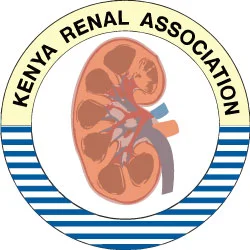In the ever-evolving realm of healthcare, the KRACON Conference 2023 emerged as a beacon of enlightenment, fostering collaboration and innovation under the theme "Multidisciplinary Approach to Kidney Care." Hosted by the Kenya Renal Association, the conference brought together a diverse array of medical professionals, researchers, and experts to explore the intersections of various disciplines in the pursuit of enhanced kidney care.
The conference kicked off with an inspiring keynote address, setting the tone for an immersive exploration of the multidisciplinary approach to kidney care. The overarching theme highlighted the significance of collaborative efforts among different medical specialties to address the complexities of renal health comprehensively.
Renowned nephrologists, urologists, radiologists, dietitians, and other specialists took the stage to share their insights on the interconnectedness of their respective fields in the realm of kidney care. One of the pivotal discussions revolved around the importance of a holistic perspective, recognizing that kidney health is intricately linked to various aspects of a patient's overall well-being.
A key takeaway from the conference was the emphasis on early detection and prevention. Experts underscored the significance of a coordinated effort in identifying risk factors, implementing preventive measures, and managing kidney diseases at their nascent stages. This approach not only enhances patient outcomes but also contributes to the overall efficiency of healthcare systems.
The integration of cutting-edge technologies in kidney care was a central theme throughout the conference. Presentations and workshops delved into the role of advanced imaging techniques, telemedicine, and artificial intelligence in refining diagnostics, treatment plans, and patient monitoring. Attendees gained valuable insights into how these innovations can streamline the decision-making process, resulting in more personalized and effective care.
Nutritional interventions and lifestyle modifications also took center stage, highlighting the collaborative efforts between dietitians, nephrologists, and other healthcare professionals. The conference shed light on how a well-coordinated approach, encompassing dietary guidance and lifestyle management, can significantly impact the progression of kidney diseases and improve the quality of life for patients.
The collaborative spirit of the conference extended beyond the lecture halls, with networking sessions providing opportunities for attendees to exchange ideas, share experiences, and forge partnerships. The sense of unity and shared purpose was palpable, as participants from various disciplines came together with a collective commitment to advancing kidney care.
As the curtains fell on the KRACON Conference 2023, the echoes of the multidisciplinary approach to kidney care reverberated, leaving a lasting impact on the healthcare community. The event not only illuminated the interconnected nature of medical specialties in the context of kidney health but also inspired a renewed sense of collaboration and unity among healthcare professionals. In embracing the multidisciplinary approach, the conference illuminated a path toward more comprehensive, patient-centered kidney care that extends beyond the boundaries of individual medical disciplines.
In the ever-evolving landscape of medical science, the field of nephrology stands at the forefront, continuously advancing to improve patient care and outcomes. One recent event that delved deep into the nuances of this dynamic domain was a webinar aptly titled "Exploring the Depths: A Dive into the World of Nephrology Imaging."
Hosted by experts in collaboration with the medical community, the webinar aimed to unravel the mysteries of nephrology imaging, shedding light on cutting-edge technologies, breakthroughs, and their implications for patient diagnosis and treatment.
The event commenced with an overview of the current state of nephrology imaging, emphasizing the crucial role it plays in identifying renal conditions at various stages. Renowned speakers, including radiologists, nephrologists, and researchers, took the virtual stage to share their insights on the latest advancements in imaging techniques.
One of the key highlights was the discussion on the use of advanced imaging modalities such as magnetic resonance imaging (MRI), computed tomography (CT), and ultrasound in diagnosing renal diseases. Experts explored how these technologies provide a detailed look into the structure and function of the kidneys, enabling healthcare professionals to make more accurate diagnoses and treatment decisions.
The audience was captivated by the exploration of artificial intelligence (AI) applications in nephrology imaging. The speakers elucidated how machine learning algorithms can analyze vast amounts of imaging data, assisting in early detection of renal abnormalities and predicting disease progression with unprecedented accuracy.
A fascinating aspect of the webinar was the spotlight on innovative imaging techniques that are revolutionizing nephrology. Contrast-enhanced imaging, for instance, was discussed for its ability to highlight vascular abnormalities and aid in the characterization of renal masses, offering a non-invasive alternative to traditional diagnostic methods.
Moreover, the speakers addressed the importance of a multidisciplinary approach in nephrology imaging, emphasizing collaboration between radiologists, nephrologists, and other specialists. This collaborative approach ensures a comprehensive understanding of the patient's condition, leading to more personalized and effective treatment plans.
In conclusion, the webinar provided a comprehensive overview of the current landscape of nephrology imaging, showcasing the strides made in technology and their impact on patient care. The insights shared during this event underscored the pivotal role of imaging in nephrology, highlighting its potential to transform the diagnosis and management of renal diseases. As we continue to delve into the depths of medical innovation, the future of nephrology imaging promises exciting possibilities for improved patient outcomes and a deeper understanding of renal health.
